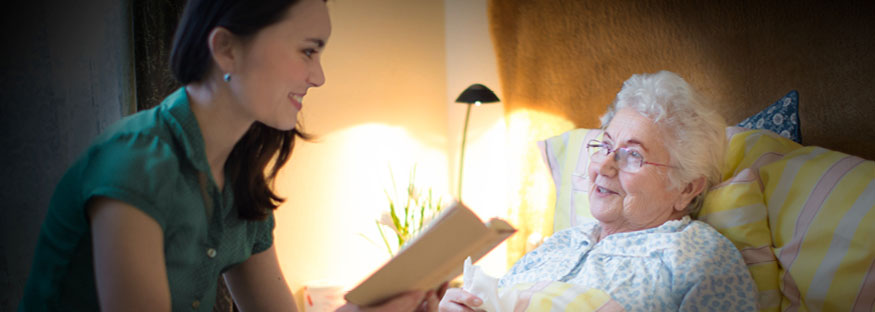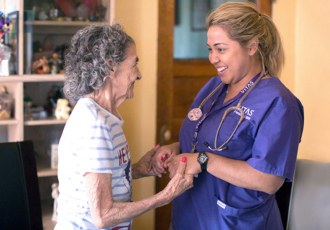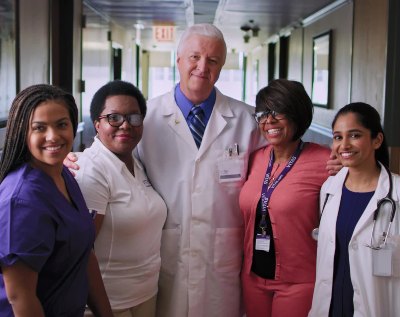Continuous Care Nurses Make Sure VITAS Is Always Available

The demands are great. The rewards are greater.
Nurses are critical members of any hospice team, as they provide the daily care that VITAS Healthcare® patients and families require, whether at home, in long term care facilities or nursing homes.
But when a hospice patient experiences prolonged, intense symptoms that can’t be managed by their primary caregiver, VITAS dispatches a continuous care nursing team in shifts of up to 24 hours/day to help alleviate discomfort and keep the patient out of the hospital.
Rising to the Challenge
Nurses who administer continuous care in the home—or Intensive Comfort Care®, in VITAS parlance—face many of the same challenges that impact nurses in any healthcare setting: long days of physically and emotionally demanding work, noncompliant patients, stressed families and constant surprises.
What it Takes to Excel
A candidate’s demeanor and outlook largely determines their aptitude for the demands of continuous care nursing, says Karen Peterson, senior vice president and chief nursing officer of VITAS.
- Where some see difficult overnight hours, the right candidate sees a flexible schedule.
- While addressing the intimate needs of the dying may seem depressing to some, the ideal candidate will value the opportunity to bring comfort and quality of life to a vulnerable individual’s final days.
According to Peterson, the most challenging aspect of the job is accepting your role in the patient’s life. “Our continuous care nurses have a lot of nursing knowledge that we want to make sure we’re sharing with the patient and family, so they can make informed decisions near the end of life,” she says, “The hardest part is to make sure we’re not imposing our beliefs onto the patient at the same time.”
If a career as a continuous care nurse sounds like a challenge you’re ready to accept, apply to one of our open positions. Working on a VITAS Intensive Comfort Care team could change your life as well as your patients’.
“The patients and their families are so grateful and supportive,” Peterson says. “They’re so thankful for you helping to support their story.”

Choose a Career with VITAS
We offer a variety of full-time, part-time and per-diem employment opportunities. Employees earn competitive salaries and have the flexibility to choose a benefits package suitable to their own needs and lifestyle.
See Current Opportunities
